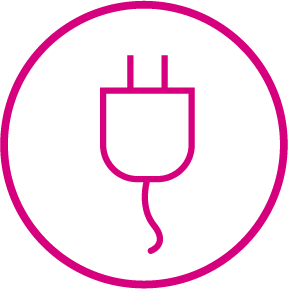Clean Industrial Deal: a bold vision for industrial transformation
On 26 February 2025, the European Commission published the Clean Industrial Deal (CID), its flagship strategy for industrial transformation. This multi-year strategy supports energy-intensive industries while positioning the CID at the core of the EU’s efforts to decarbonise the economy and maintain global competitiveness in clean technology leadership.
The Draghi report on EU competitiveness underscores the urgent need for Europe to close the innovation gap with the US and China, align climate efforts with competitiveness, and reduce dependencies. The CID translates these priorities into concrete policy, equipping businesses with the tools, regulatory framework, and funding over the next five years to achieve climate targets and compete globally.
The Clean Industrial Deal creates opportunities for European industries, particularly in energy-intensive sectors, by streamlining regulations, expanding clean technology markets, and simplifying planning, permitting, and tendering. Supported by major investments, the CID drives growth in renewable energy, hydrogen networks, CO₂ transport infrastructure, and digitalised energy systems, ensuring a more competitive and sustainable industrial landscape.
6 key areas of the Clean Industrial Deal
Energy security and pricing
Addressing high energy costs through new infrastructure investments and regulatory reforms


Financing
Ensuring adequate public and private funding to accelerate industrial transformation
Recycling and critical raw materials
Introducing a Circular Economy Act to reduce resource dependency and strengthen EU supply chains


Labor and skills
Prioritizing workforce development, ensuring that industrial transformation creates quality jobs and meets labour market needs
Lead markets
Creating demand for decarbonized goods through public procurement rules, quotas, and incentives for green innovation


Global action
Expanding strategic trade partnerships and implementing mirror clauses to ensure imported goods meet EU environmental and labour standards
What to expect from the new mandate?
The Clean Industrial Deal outlines several initiatives to reshape the European industrial landscape and support businesses in their transition toward competitiveness. Launched as a strategy in early 2025, it is accompanied by concrete legislative initiatives aimed at accelerating industrial decarbonisation, strengthening clean tech investment, enhancing energy infrastructure, and fostering digital and green skills.
These initiatives set the foundation for a regulatory framework that will drive the adoption of low-carbon technologies, simplify permitting processes, and create lead markets for sustainable industrial products:
- Industrial Decarbonisation Accelerator Act (2025-2026): A legislative proposal to streamline permitting processes for renewables, industrial decarbonisation projects, and grid infrastructure. The Act will introduce resilience and sustainability criteria, including minimum local content requirements and EU preference in public procurement.
- Energy transition targets: The EU aims to increase its electrification rate to 32% by 2030, supported by the annual installation of 100 GW of renewable energy capacity. AI-driven smart grids and IoT-based energy monitoring will enhance real-time grid management and demand flexibility.
- Affordable Energy Action Plan: A framework to reduce electricity costs through tax incentives, new financing mechanisms, and expanded corporate Power Purchase Agreements (PPAs). The European Investment Bank (EIB) will support a €500 million pilot programme for corporate PPAs in Q2 2025.
- European Competitiveness Fund: A funding pool designed to attract private investment into industrial innovation, with a strong focus on clean technologies. The EU will mobilise €100 billion in funding and counter-guaranteed loans in the short term, with an additional €6 billion from the Innovation Fund allocated to clean tech and industrial decarbonisation projects in 2025.
- Circular Economy Act (Q4 2026): A legislative package revising e-waste regulations, standardising ‘end-of-waste’ definitions, and setting stricter recycling targets. The EU aims for a 24% circular material use rate by 2030, up from 11.8% today.
- Hydrogen Market Development: A new mechanism under the Hydrogen Bank will be introduced in Q2 2025 to connect off-takers and suppliers in key sectors such as maritime and aviation. A third funding call under the Hydrogen Bank will launch in Q3 2025, with a budget of up to €1 billion.
- Greening Corporate Fleets Initiative (2025-2026): A proposal to introduce stricter emissions requirements and low-carbon standards for corporate vehicle fleets, with support measures for businesses adopting sustainable transport solutions.
How will the Clean Industrial Deal impact your organisation’s operations?
As a decision-maker in your company, you might feel that waiting for the CID to unfold is your best course of action, but that could not be further from the truth because the time to get ahead of the game is now. Instead of just following the industrial transition, you can lead it.
Businesses must act swiftly to align with upcoming regulations and leverage new funding opportunities. Those that engage early will gain a strategic advantage, ensuring that they shape the regulatory framework rather than simply adapt to it.
Why the Clean Industrial Deal matters for your organisation?
This new framework will create both challenges and opportunities. Heavy industries such as steel, chemicals, and fertilisers will be pushed to transform sustainably while being shielded from unfair competition through carbon leakage protections. The modernisation of the electricity grid will help stabilise energy costs across EU member states, making planning and investment more predictable. Changes to procurement rules will favour European-made technologies, presenting a major opportunity for local innovation.

Trade partnerships will be redefined, reshaping supply chains and creating new business prospects. But there’s more at stake: engaging now in these policy conversations can help shape regulations that protect and advance your interests. With Publyon, you can make sure your industry’s voice is heard and shape a regulatory landscape that’s designed for success.
Clean Industrial Deal Public Affairs services
Don’t just follow the industrial transition, lead it. Publyon will guide you through the complexities of the Clean Industrial Deal, positioning your organisation at the forefront of Europe’s sustainable future. Engaging early with these developments will be key.
By engaging now, you can shape policy rather than simply react to it. Our team will help you monitor regulatory changes, develop a strong public affairs strategy, and connect with key decision-makers who influence EU policies.
Don’t let this decisive moment pass by and position yourself today for lasting success by:

Monitoring
Monitoring these shifts closely can help organisations anticipate and adapt to the opportunities and challenges they present, ensuring they are prepared to thrive in a rapidly evolving regulatory landscape.

Adapting your narrative as foundation for a strong public affairs strategy
Ensure your messages not only align with the EU’s direction but keep your organisation relevant and grant you access to strategic discussions with the new and different mandate of politicians.

Engaging and building strong connections with key decision-makers
Position your organisation to shape EU policy in ways that support and advance your strategic goals.
Are you ready to turn policy into opportunity?
Act now to secure your competitive edge in the EU’s new industrial era. Fill out the form below and our experts will get in touch with you.


